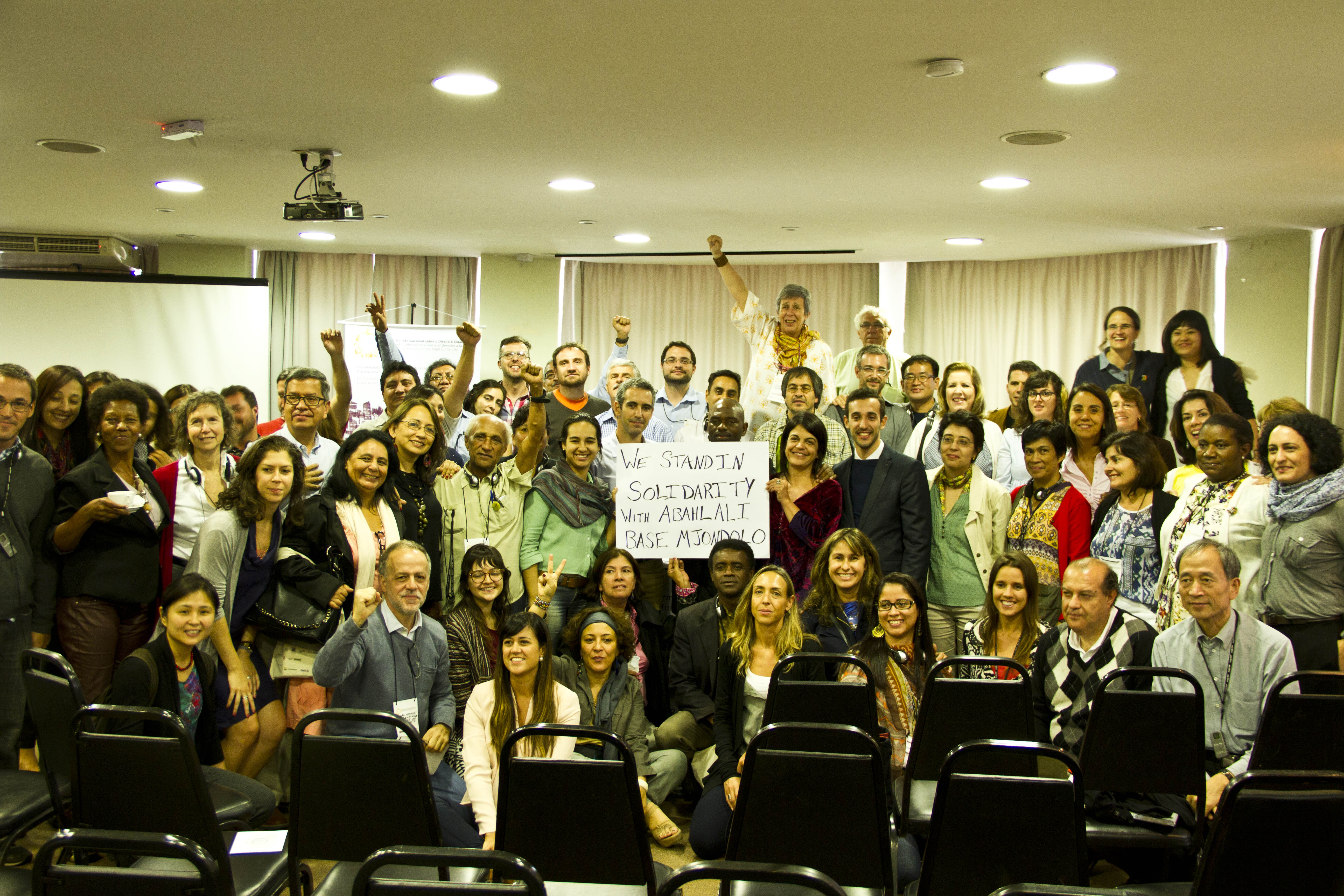Advancing ESCR for the residents of cities and communities affected by forced displacement

From 12-14 November, an International Meeting on the Right to the City was coordinated by ESCR-Net members Instituto Polis and the Habitat International Coalition (HIC) in Sao Paolo, Brazil, and was attended by approximately 200 participants, including ESCR-Net Members Abahlali baseMjondolo and Terra de Direitos. In the meeting, ESCR-Net was invited to facilitate a working session on Articulation and Alliances in order to assist participants to analyze the alliances they envision for an international platform on these issues and to share principles for developing effective alliances and collaboration. ESCR-Net also emphasized the need to ensure meaningful participation by social movements and grassroots groups representing residents in cities and informal settlements with regards to the development of proposals for joint action. Finally, highlighting the international human rights framework, ESCR-Net stressed the importance of foregrounding substantive equality and women’s ESCR, as well as noting well-developed components of the right to adequate housing, water and sanitation of relevance for the analysis and strategies that may emerge from this collective conversation.
Between 21 and 22 November, ESCR-Net also participated in an international conference regarding strategies for confronting development-based evictions and displacement. The conference was coordinated by the Displacement Research Action Network at MIT’s Department of Urban Studies and Planning, with which ESCR-Net has collaborated in recent years. Participants, including ESCR-Net members Amnesty International, the Federation of Organs for Social and Educational Assistance (FASE), Instituto Polis, International Accountability Project (IAP) and individuals working with the Posco Pratirodh Sangram Samiti (PPSS) and Abahlali baseMjondolo, discussed some effective strategies to stop evictions and displacement, as well as ways in which eviction-affected communities cope or respond after displacement occurs. ESCR-Net contributed to a panel relating to strategies involving documentation, impact-assessment mapping and media, and shared some of the strategies that Members have been using to confront these serious human rights threats. Working sessions included a discussion about the use of the law, resistance strategies and communications.
ESCR-Net looks forward to continuing to amplify the work of Members regarding human rights issues relating to cities and evictions/displacement, while facilitating and contributing to collective discussions, analysis and advocacy on these topics from a perspective of economic, social and cultural rights.
